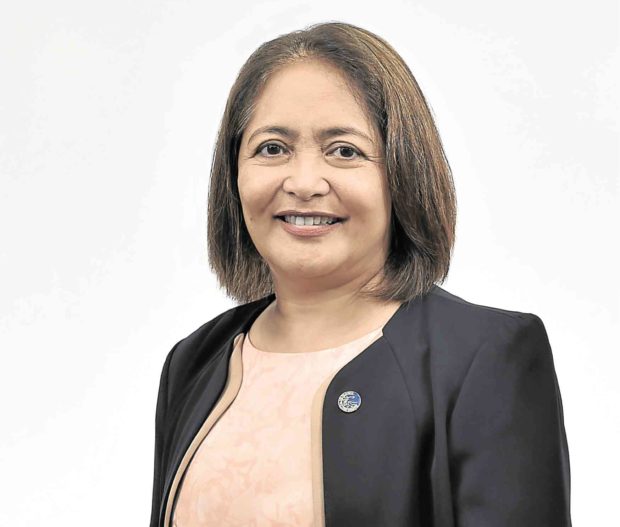
Chuchi Fonacier
The Philippines is mapping out a framework for the licensing of digital banks, recognizing an emerging class of banks that can catalyze financial inclusion in a country where traditional banking penetration is very low but mobile phone ownership is very high.
In reply to the Inquirer, Bangko Sentral ng Pilipinas (BSP) Deputy Governor for banking supervision and examination Chuchi Fonacier said in an email that the BSP was targeting to issue a new circular on the establishment of digital banks this September. This is part of the BSP’s digital payments transformation roadmap.
Albay second district Rep. Joey Sarte Salceda, for his part, is working on the legislation of House Bill No. 5913 or the Virtual Banking Act, pitching this as an opportunity to enable “fast, reliable and less costly delivery of social cash transfers” and expedite the rollout of critical anti-poverty measures and help achieve inclusive growth.
“Hopefully, we can have this bill passed before 2020 ends. A vibrant financial technology and virtual banking sector will be part of our economic recovery. If we can strengthen the regulatory framework and promote the industry responsibly, the virtual banking sector will be a very resilient part of our economy,” Salceda said in an interview.
The proposed BSP framework seeks to create digital banking as a new classification distinct from universal banks, commercial banks, thrift banks, rural banks, cooperative banks and Islamic banks.
Two types of digital banks are proposed by the BSP. A “basic” digital bank, which should be capitalized at a minimum of P400 million, can accept deposits, grant unsecured loans, collect and pay for the account of others, provide remittance and bill payment services and issue electronic money products.
In addition to performing all functions that a “basic” digital bank can perform, an “advance” digital bank will be allowed to grant secured loans, issue credit cards and undertake other activities allowed by the BSP’s policy-making Monetary Board. The BSP plans to impose a minimum capital requirement of P900 million for “advance” digital banks.
The BSP plans to give existing banks that meet the definition of a digital bank two years to meet the minimum capitalization requirement.
UnionBank’s EON, RCBC’s DiskarTech, Eastwest Bank’s Komo and Landbank’s OF (Overseas Filipino) Bank are currently among the digital banks operated by local banks. Foreign banks CIMB and ING Bank have likewise rolled out digital banking platforms.
Salceda’s bill seeks to limit the BSP’s granting of licenses to five applicants year over a five-year period, after which it can adjust the limit. The lawmaker also proposes a much higher minimum capitalization requirement of P20 billion for digital banks, which must be raised in four years.
The lawmaker also proposes leeway for foreign investors to own up to 70 percent of a digital bank. On the other hand, the BSP’s proposed circular prescribes a foreign ownership limit of 40 percent, except for qualified foreign banks, which may own up to 100 percent.
“As for openness to foreign equity, we generally want more foreign participation especially at the initial stages since we want to absorb financial technology developed from elsewhere. This is a new industry and an industry where we have limited domestic know-how, so the more we can learn from others, the better,” Salceda said.
Without clear guidelines, Salceda said there would be some skirting of the standard macroprudential measures for risk mitigation.
“At the same time, the framework clearly has to be distinct, because the operations of virtual banks have some key differences with conventional banking, particularly on how seamlessly virtual banks can integrate other financial products into the standard deposit account,” he said. INQ